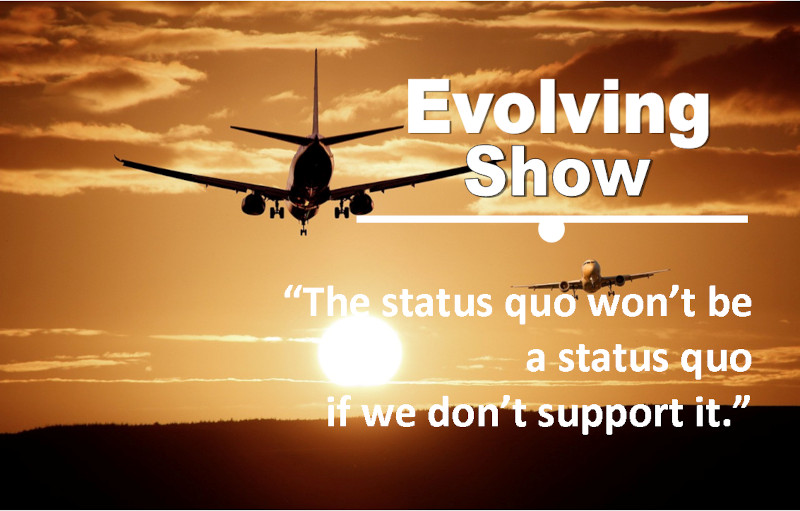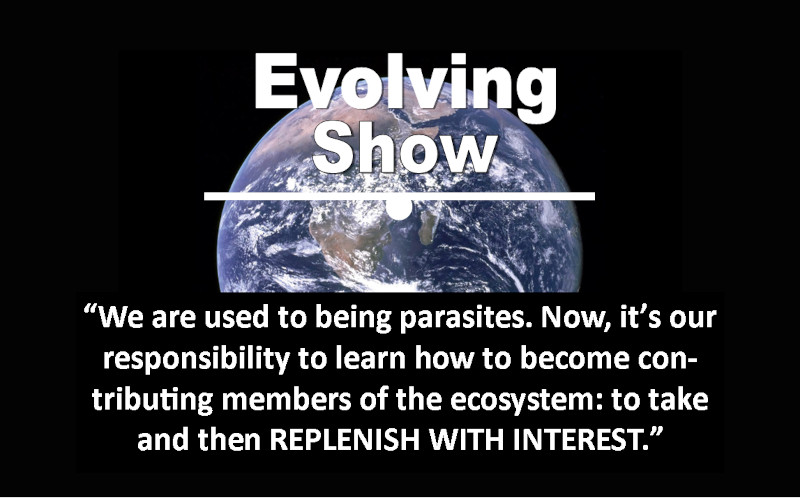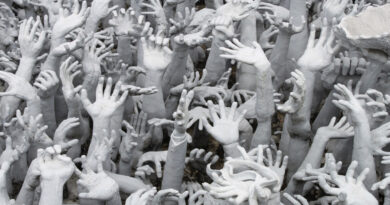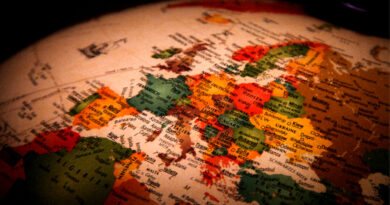Sustainable Living In The Climate Change Era
Climate change is no longer a threat looming on the horizon. It is already here, the magnitude of recent record-breaking heatwaves, hurricanes, and other natural disasters proves it.
As individuals, we have limited power to make large-scale changes that would make our world more sustainable and Nature-friendly.
Theoretically speaking, voting and publicly standing up for climate should be effective but it doesn’t make enough of a difference.
Practically, there are a few things each of us can do to effectively delay climate change.
1/ Change the way we live by living more sustainably and causing less damage to the natural environment. The changes may seem difficult at first, but they aren’t. Once you get used to them, they are easy to live with and your sense of pride and personal power will more than make up for minor inconveniences.
2/ Prepare for and make some sacrifices. Yes, this means some deprivation but the deprivation is for the period of transition into a more sustainable industry, not forever.
3/ Teach others to follow your lead. Build a community focused on sustainable living. Those who don’t live sustainably will eventually be excluded and become a minority.
4/ Force our values on the big industry by the way we spend our money. As you have surely noticed, products and services for which there is no demand have dramatically lower supply or get discontinued altogether.

The status quo won’t be a status quo if we don’t support it.
Imagine for example that one day no one purchased airline tickets and the airlines were notified that no one will buy airline tickets unless their aircraft stop using fossil fuel. The airlines would find a way to switch to a more sustainable fuel fairly QUICKLY.
Imagine people stop buying laundry detergent sold in huge plastic containers and the laundry detergent manufacturer gets notified that no consumer will buy their product until it becomes available in biodegradable packaging. A change would come about SWIFTLY.
With the four main points out of the way, larger changes, such as a switch to solar power or the purchase of an all-electric vehicle have to be planned and budgeted for. I can’t tell you to make the switch today.
BUT, there are a few changes you can make right now that will make your life more sustainable and less damaging to the ecosystem.
EAT LESS MEAT
Meat consumption massively contributes to climate change. Raising and killing animals for food involves deforestation, huge water use, greenhouse gas emissions, not to mention ethical concerns of breeding and raising living beings for food.
According to The Guardian, greenhouse gas emissions involved in the production of one pound of wheat weigh about 2.5 pounds; while the greenhouse gas emissions involved in the production of one pound of beef are 70 pounds!
Eating significantly less meat or adapting to a meatless diet is better for the environment, the animals, and… our conscience.
TAKE CONTROL OF YOUR TRASH
Endless trash generation is another huge problem that contributes to climate change. How can one person or one household make a difference? Recycling is helpful, but that’s not enough. Our undoing is indestructible trash. Don’t buy and don’t use one-time-use containers. Stir clear of plastic, no matter what you read or heard, most plastic is NOT recyclable. You knew that, right?
Chances are you don’t know that we dispose of organic trash incorrectly! (By the way, when I say organic trash I mean peels, seeds, and other leftovers from veggies and fruit or spoiled produce that sat too long in the refrigerator.) Most consumers pack organic trash neatly in a plastic bag and throw it out. Here’s the eye-opening part: organic trash buried in the soil is biodegradable; it decomposes naturally and enriches the soil; in a plastic bag (which means cut off from oxygen!) discarded with regular trash, organic trash releases Methane gas that’s even more toxic than carbon dioxide! It’s unbelievable that a plastic bag makes such a difference: it has the power to convert organic matter into a powerful environmental poison!
I urge you to look into composting; it’s doable even if you live in an apartment. There are many options ranging from free, cheap, and affordable to costly. Explore the options available to you in your area; some communities manage organic waste disposal better than others. (In several European cities, municipal composting bins are provided throughout the area to facilitate sustainable disposal of organic trash.) Look into it: according to USDA we would cut the greenhouse gas emissions from trash by 170 million metric tons if we composted organic trash!
IN-HOME ENERGY USE
Give another thought to your in-home energy use. In the past, the use of heating and air conditioning was a matter of cost alone. Now, we know better. No amount of money can – or will – protect us from climate change. Our homes are huge energy guzzlers. The best way to save on heating and cooling is insulation. There are some new and cool options available that will help you minimize energy use.
The refrigerator uses plenty of energy as well. Believe it or not, a full refrigerator requires less energy to stay cool. If yours isn’t full, fill it with water bottles!
Water heaters use a lot of energy. It’s prudent to use cold water whenever possible.
Another thing to consider is lighting. Replacing incandescent light bulbs with LED lightbulbs saves 75% of energy. Yes, LED lightbulbs cost more but they also last much longer. One thing to keep in mind, LED lights are blue lights just like the TV, smartphone, and computer screens you were warned about. Blue light interrupts normal sleep patterns. Make sure not to use strong LED lights in general but in the bedroom use only dimmable – and preferably red – LED lights. (It took me two sleepless weeks before I realized that the cause of my sudden insomnia were LED lights…) Keeping a low-wattage incandescent light bulb in the bedroom might make sense, too.
MOST PRECIOUS NATURAL RESOURCE
What do you suppose is the most precious commodity on Earth? Diamonds? Uranium? Petroleum? Nope. It’s WATER! There is no life without water. Shortage of water is to be expected. Drought-caused water-saving measures are already in effect in several States.
Invest in a water-efficient showerhead and – if feasible – other water-saving fixtures. Needless to say, NEVER let the water just “run”. Whatever you do, be mindful of your water use!
How else to minimize your personal carbon footprint?
RETHINK TRANSPORTATION
Choose eco-friendly and public transportation as much as possible.
Drastically limit air travel. According to the Center For Climate And Energy Solutions, aircraft is the number one contributor of carbon dioxide emissions in the U.S. (Worse, as of now, airlines are exempted from federal greenhouse gas regulations.) I urge you to exclude flying from your plans until airplanes are powered by sustainable energy sources!
When thinking about transportation in general, consider its damaging impact. Make thoughtful plans and choices. The less we travel and commute, the less we contribute to climate change!
CHANGE YOUR SHOPPING HABITS
Consider your shopping habits and dependence on supply. You know how irritating it is when the item you need is out of stock. We are slaves to supply! If – for whatever reason – the regular supply chain was to be interrupted, most of us would be at a loss. That’s because we were conditioned to be consumers. We were trained to earn money and then use it to support big business. We weren’t taught to be self-sufficient.
People who survived a severe crisis, such as war, the Great Depression, or a major natural disaster, learned how to adjust and survive under challenging circumstances. Climate change is the impending crisis of our time. We too have to learn how to adjust in order to survive. The time to learn is now!
Fast fashion: as the fashion mantra goes, you have to have this particular outfit right now to be attractive. Fast fashion is appealing and affordable, why not? Because fast fashion is also of poor quality, doesn’t last long, and ends up in a landfill quickly.
There is a hot trend of reusing and repurposing. Used clothing is affordable. The same amount you spend on poor-quality fast fashion will buy you good-quality used clothing. Vintage clothing is also used clothing. Vintage clothing ensures originality that fast fashion can’t. Better, there are alterations and upcycling: go DIY and become your own designer. Be unique and envied! At the same time, you’ll do a lot of good. (Incidentally, good quality garments have a long lifespan. A good quality sweater can evolve into a scarf, a pillow case, a hat, or a pet bed.)
The same goes for furniture and home décor. Eclectic is the word. In this case, also, used is better for you and the environment than new. Old, used furniture is made of wood which is durable and doesn’t contribute to indoor pollution. The cute new furniture on the other hand has a limited lifespan and most of it is made of wood particles that emit toxic fumes indoors. Good quality furniture lasts, becoming an “antique” or a collectible over time. Some can be passed on from generation to generation. It doesn’t contribute to landfill growth nearly as much as the new and trendy furniture.
Some drugstore products can be made at home. The cosmetic industry is extremely profitable because making cosmetics is cheap. (The most expensive part of cosmetics is usually their packaging.) Do some research, save the environment from excess trash, and make at least some of your cosmetics yourself. You’ll find that the colors match you better and you’ll save money.
Laundry products are another thing we’re hooked on. They are synthetic and come in oversized and often plastic packaging. Yes, healthier laundry products are available as well but tend to be pricey. There is a third option: consider making your own, natural laundry detergent! (There are many recipes Online.) This way, you won’t be supporting further plastic packaging production and indestructible plastic waste. (Don’t get me wrong. Plastic has its benefits. But why don’t we wait for BIODEGRADABLE plastic?)

We are used to being parasites. Now, it’s our responsibility to learn how to become contributing members of the ecosystem: to take and then REPLENISH WITH INTEREST.
GIVE A THOUGHT TO SELF-SUSTAINABILITY
The era of self-sustainability is coming. In the not-too-distant future, each of us will be expected to grow some food for our own consumption.
If you have a yard, start exploring permaculture (that’s food-growing in harmony with Nature). If you live in an apartment, look into hydroponics (that’s indoor plants growing without soil). If you grow only green onions (that’s just an example; you can grow lettuce, radishes, tomatoes, you name it!); your green onions will be fresh and organic, not to mention one less thing you have to buy…. OK, I agree green onion is cheap but did you ever think how much environmental impact the commercial production of green onion has? No, we don’t usually think about it, but imagine the farmland used, fossil fuel-powered farming equipment, water use, and finally transportation to a warehouse and then to the store near you… The environmental impact adds up. YOU could grow your own green onions using water alone and never get your hands dirty. If we all did that, the environmental impact of commercial farming would be a tiny bit smaller.
There is no way to stock up on food for the rest of our lives. Considering climate change, historic drought throughout the country, the war in Ukraine, and the economy, some food growing for our own use is very likely a part of our future.
I’m not a fan of dystopia and I don’t preach doom and gloom, but let’s get real: our situation IS dire. Unless we all put forth the effort to change the way we live from exploitative to sustainable, we’ll lose EVERYTHING.
*
I started the Evolving Show with two episodes on personal development because the courage to live by your convictions comes from the recognition of your value and the ability to assert your convictions with others. Now, is the time to have that courage.
– Now, is the time to change how we think, live, and define life’s satisfaction.
– Now, is the time to take responsibility for our damaging impact on the ecosystem.
– Now, is the time to conserve, restore, contribute, sacrifice, and minimize our carbon footprint.
– Now, is the time to take pride in sustainability and self-sustainability skills.
The Earth isn’t waiting anymore. We HAVE TO change, NOW.
This episode of the Evolving Show podcast is available also on:
Apple Podcasts
Spotify
Anchor
Sticher
Pandora
iHeartRadio
To leave a comment scroll down the page. No login required!





